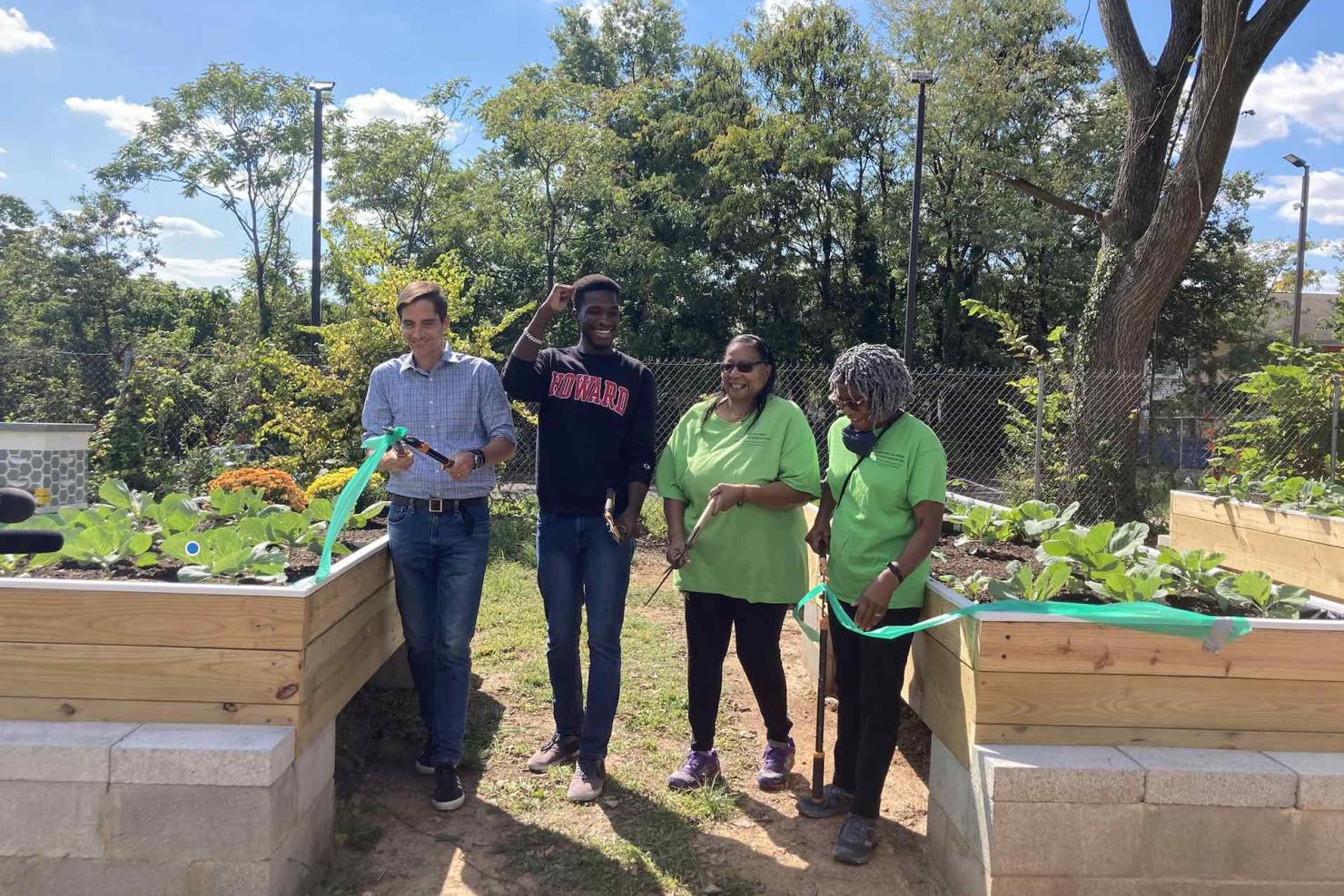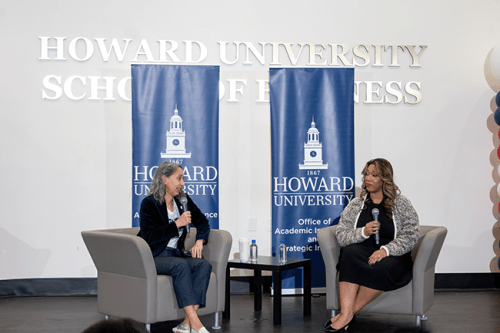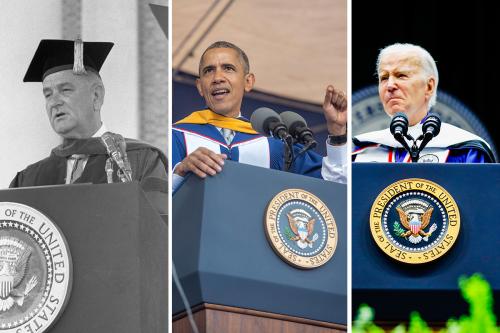WASHINGTON – Mechanical engineering senior Cheikh Badiane from the Howard University chapter of Engineers Without Borders joined community organizations to celebrate the Garden of Eden project in the city’s Ward 8 community – a series of raised garden beds enhancing the accessibility of gardening for seniors and those with limited mobility.
Known as the Garden of Eden, the Allen Chapel AME site is comprised of 15 raised beds and 14 fruit trees. The Garden of Eden, its name inspired by the Biblical story of Adam and Eve, strives to embody paradise as described in the Bible. The gardeners of Eden grow flowers, fruits, vegetables, herbs and medicinal plants to support healing from common conditions plaguing the surrounding community. Produce is distributed to local residents through the Allen Chapel Food Pantry.
Badiane served as the team lead for the raised garden bed project. The main organizational partners were the 11th Street Bridge Park (a project of the Ward 8 nonprofit Building Bridges Across the River) and Allen Chapel.
A team of Howard students from HU-EWB and professional engineers began their design work on the project in March, and construction and implementation of the design took place over the Summer. The team completed site walks and speaking with community gardeners at the church to understand their needs.
“We tried to incorporate portions of human-centered design work,” Badiane said. “What that means is, throughout each phase of our design work, we reach out to the clients and make sure the design works for them. Oftentimes, you have engineers with a bunch of degrees, and they come in and say, ‘You need this’ or ‘You need that.’”
The volunteer professional engineers from the National Society of Black Engineers and the Society of Hispanic Professional Engineers as well as the Virginia professional chapter of the American Society of Civil Engineers and Clarke Construction also played major roles in the project.
“We are so thankful to the Howard University students and over a dozen dedicated volunteers for donating their time and expertise helping to address food insecurity east of the river. We’re already looking to add these raised beds at our other Bridge Park plots across Ward 8,” said Scott Kratz, vice president of Building Bridges Across the River.
John Tharakan, Ph.D., Howard University professor of chemical engineering and faculty advisor of EWB-HU, also commended Badiane for his leadership and dedication in coordinating the team on the project, especially during these pandemic-restricted times.
"Our students are community-engaged problem solvers, committed to engineering the world into a better more sustainable and equitable place, serving people and the planet, and improving the quality of life for all," Tharakan said.
Ward 8 has only one full-service grocery store serving over 75,000 residents, leading to the highest rates of adult diabetes and obesity and lowest access to fresh fruits and vegetables in the District of Columbia. During a special event on September 30, the event partners were on site to officially open the expanded garden, currently planted with green and purple cabbage, collards and broccoli.
The Garden of Eden is one of seven urban farms called Bridge Park Plots created by Building Bridges Across the River and communities of faith/nonprofits in Southeast D.C. For more information, visit: https://bbardc.org/project/the-farms/.
Read an article about the project from WTOP.
For more information about the HU-EWB, contact cheikh.badiane@bison.howard.edu or follow the chapter’s Instagram ewbhoward.
###
About Howard University
Founded in 1867, Howard University is a private, research university that is comprised of 14 schools and colleges. Students pursue more than 140 programs of study leading to undergraduate, graduate and professional degrees. The University operates with a commitment to Excellence in Truth and Service and has produced one Schwarzman Scholar, three Marshall Scholars, four Rhodes Scholars, 12 Truman Scholars, 25 Pickering Fellows and more than 165 Fulbright recipients. Howard also produces more on-campus African American Ph.D. recipients than any other university in the United States. For more information on Howard University, visit www.howard.edu.
Media contact: Sholnn Freeman, Howard University, sholnn.freeman@howard.edu





